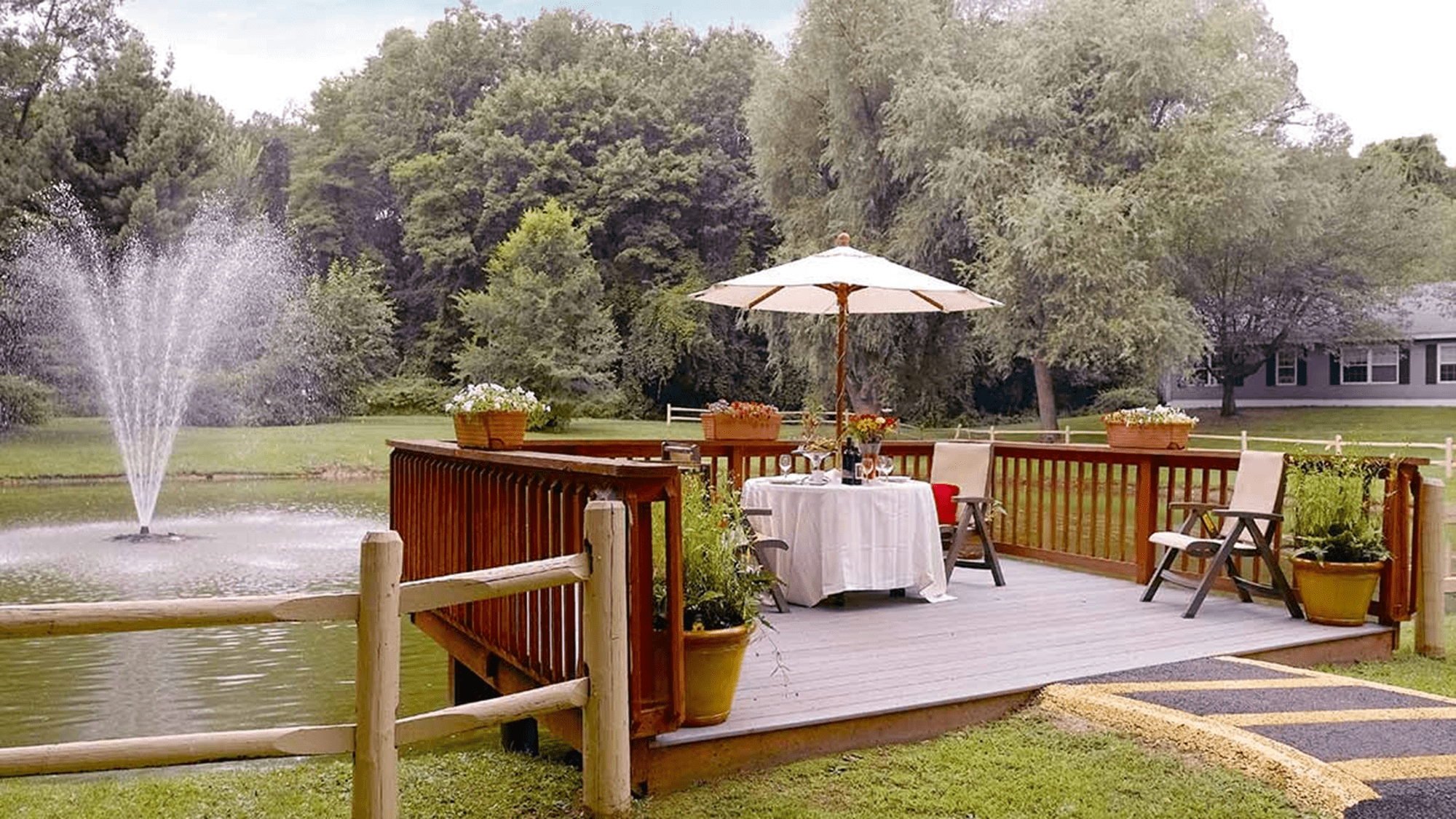There often comes a time in life when we all need a little extra help. That’s why assisted living communities are a beneficial choice for the many older adults who find themselves in need of extra support in their day-to-day lives
While eligibility requirements for assisted living don’t have a one-size-fits-all answer, commonalities in assisted living eligibility often include requirements that:
- Residents be 55+
- Residents should require assistance with their activities of daily living (ADLs)
- Residents should have relatively stable health and not require around-the-clock care
Understanding the eligibility requirements for assisted living is important, whether for ourselves or a beloved family member. With the right information, the transition into assisted living can be smooth, ensuring that everyone finds the care and community they deserve.
Who Qualifies for Assisted Living?
Eligibility for assisted living typically depends on an individual’s health needs, age, and functional status. It’s not just about requiring assistance, but also about ensuring that a community’s environment aligns with an individual’s lifestyle and preferences. Assisted living is suitable for seniors who may need help with ADLs such as bathing, dressing, and meal preparation.
Family members and healthcare providers often play a significant role in identifying assisted living needs. If you or your loved one struggles with daily tasks, experiences frequent falls, or faces loneliness, it might be time to consider assisted living.
Understanding the Requirements
These requirements may vary between communities, but the following considerations give you an idea of what to expect in many cases.
Age Considerations
Most assisted living communities serve older adults, typically those aged 55 and above. But age alone isn’t a strict criterion. The focus is more on the individual’s ability to benefit from the services provided. Younger adults with disabilities or chronic health issues may also find assisted living communities that cater to their specific needs.
It’s essential to research and find a community that aligns with the prospective resident’s age group and requirements. Age-specific amenities and programs can significantly enhance the living experience.
Functional Status
Functional status refers to an individual’s ability to perform ADLs independently. Assessing this includes evaluating mobility, cognitive function, and the need for assistance with personal care. Tools like the Katz Index of Independence in ADL help healthcare professionals determine the level of support required.
Those who can still engage in social activities, manage their medications with minimal supervision, and participate in community events are often ideal candidates for assisted living. The goal is to provide support without compromising the resident’s sense of autonomy and independence.
Health Considerations
Health is a critical factor in determining eligibility for assisted living. Residents should be relatively healthy, but they should also need assistance with certain daily activities. Chronic illnesses that require regular monitoring, such as diabetes or hypertension, are often manageable within these communities.
Individuals with severe medical conditions that require round-the-clock medical care might not be suitable candidates for assisted living. For example, a senior with dementia likely won’t be a candidate for assisted living, but they may qualify for a more intensive service like memory care.

How to Apply for Assisted Living
The process will be unique for each family, but the following provides a good overview of finding an assisted living community.
Research & Visit Communities
Begin by researching various communities. Look for reviews, testimonials, and ratings to narrow down your choices. Visiting these communities in person provides a better understanding of the environment, staff, and amenities.
Assess Needs & Preferences
Understanding the prospective resident’s specific needs and preferences is crucial. Determine the level of care they require, their preferred location, and the prospective community’s available amenities. Doing this assessment helps select a community that aligns with the individual’s lifestyle and requirements.
Complete Application & Assessment Forms
Once you and your loved one identify a suitable community, the next step is to complete the application process. This typically involves filling out forms that detail medical history, current health status, and personal preferences. Many communities also conduct an assessment to determine the level of care needed.
Financial Planning & Contracts
Review and understand the cost structure of the prospective community, including additional fees for specific services. Ensure transparency regarding the financial commitment and contract terms. Clarify any doubts and understand the policies related to deposits, refunds, and future rate changes.
Start Booking Community Tours Today
Understanding the eligibility requirements for assisted living is vital in ensuring that you or your loved one receives adequate care. By considering health, age, and functional status, families can make informed decisions that lead to a fulfilling and supportive living environment.
Exploring various communities, assessing specific needs, and financial planning are all integral parts of this process. The right assisted living community can offer a blend of independence and support, enhancing its residents’ overall quality of life.
Contact our team at Peregrine Senior Living at Crossgate if you’re ready to take the next step or need personalized assistance. We’re happy to guide you through the process and book a community tour with you so you can see what Peregrine has to offer.













No more posts